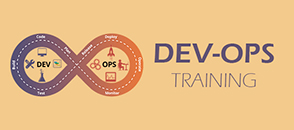


![]() Online Training
Online Training
![]() Corporate Training
Corporate Training
![]() ON Demand
ON Demand
In this course, we look at the necessity of Devops and how a DevOps transformation can help focus on value and streamlined delivery. We will also cover concepts like Automation and technology which play huge roles in DevOps success; in this course we'll analyze the major capability areas and which technologies can get your team on its way.
After the completion of DevOps course you will be able to :
This course is a foundation to anyone who aspires to become a DevOps Engineer, a Service Engineer in the field of Enterprise Infrastructures. The following professionals are the key beneficiaries of this course :
The pre-requisites for this course include basic knowledge of Linux & Networking.
We provide courses which start at the very basic level in an easy to learn interactive way.
Expert Instructors
Practical Implementation
Real- time Case Studies
Certification Guidance
Resume Preparation
Placement Assistance
Copyright 2018 © www.unitedglobalsoft.com . All right reserved | Sitemap | Privacy Policy | Terms Of Services